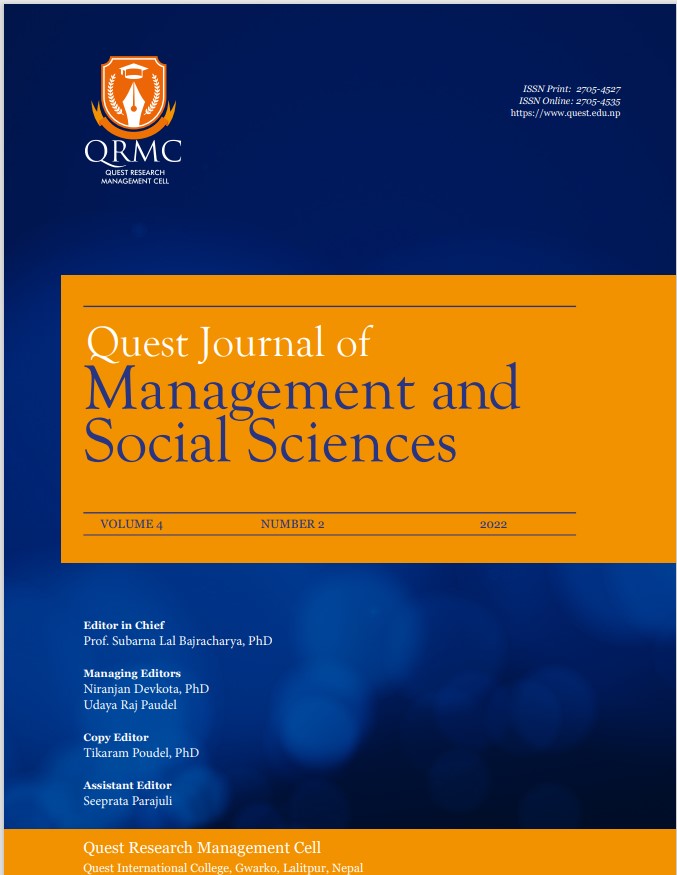Employee Compensation and Financial Performance: Evidence from Commercial Banks of Nepal
DOI:
https://doi.org/10.3126/qjmss.v4i2.50313Keywords:
Return on Assets, Return on Equity, Employee CompensationAbstract
Background: The role of employee pay in financial performance is misty, with plenty of space to explore. Human resources have been discarded from the mainstream arena despite being a strategic partner.
Objective: The study aims to investigate the association between employee compensation and financial performance.
Methodology: The study uses econometric analysis, descriptive analysis, correlational analysis, and trend analysis to disclose the relationship between employee compensation and financial performance. Employee compensation is measured in terms of staff expenses, and ROE and ROA measure financial performance.
Results: Employee compensation positively impacts the financial performance of BFIs. Quantitatively, a 1 percent rise in employee compensation increases ROA by 0.02 percent point and ROE by 0.20 percent point. Likewise, the size of a firm negatively affects financial performance. Revenue diversification has a positive effect on financial performance. Similarly, the cost-to-income ratio negatively affects financial performance.
Implications: BFIs must invest in employees to develop their skills and focus on providing mercenary and non-mercenary benefits to employees, enhancing their performance by discouraging them from shrinking on the job. Also, BFIs shall enhance their competitiveness and focus on increasing non-interest income while simultaneously reducing interest expenses.
Downloads

Downloads
Published
How to Cite
Issue
Section
License
Copyright (c) 2022 Quest Journal of Management and Social Sciences

This work is licensed under a Creative Commons Attribution-NonCommercial-NoDerivatives 4.0 International License.
This license enables reusers to copy and distribute the material in any medium or format in unadapted form only, for noncommercial purposes only, and only so long as attribution is given to the creator.



